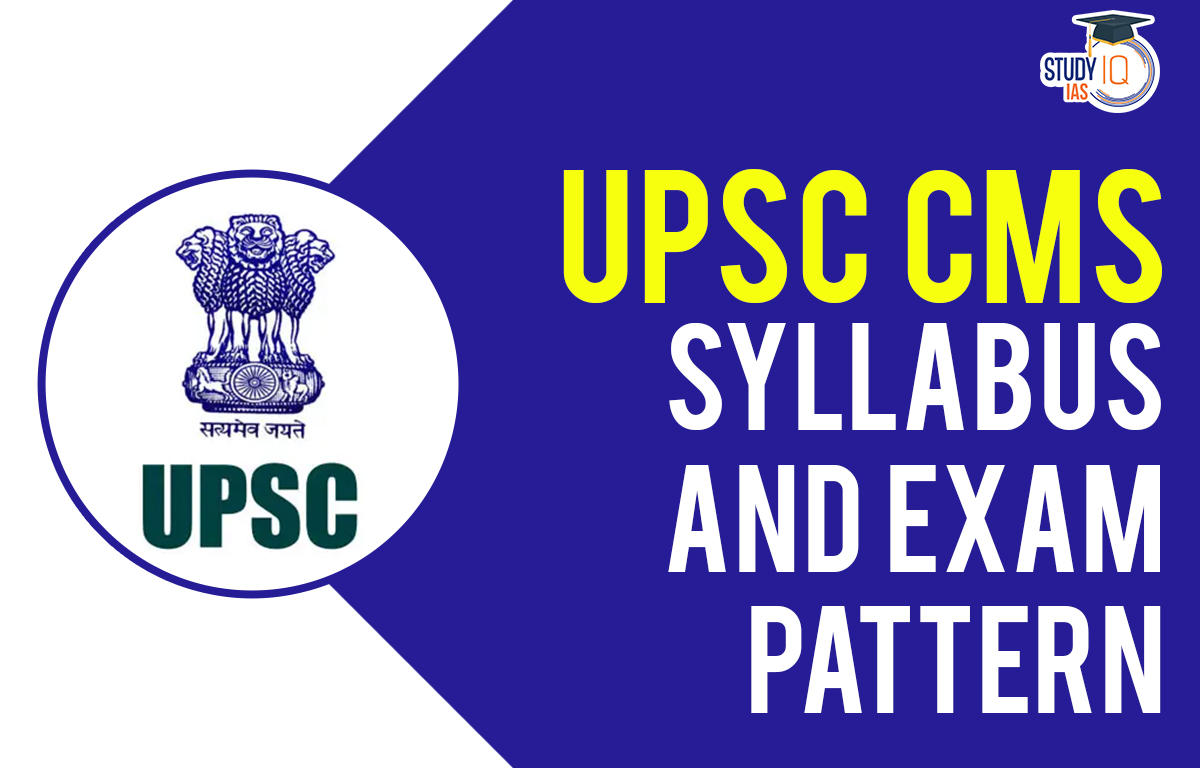Table of Contents
UPSC CMS Syllabus
UPSC CMS Syllabus: Candidates needs to be aware of the UPSC CMS Syllabus to get hired, as an officer under CMS Examination. The UPSC CMS Syllabus for 2023 has been discussed in detailed in this article. Therefore, this page can be used by everyone who has applied for the UPSC CMS Exam 2023.
UPSC CMS Syllabus 2023
In UPSC CMS Syllabus 2023 there are 2 papers (Paper 1 and Paper 2) in the written exam, each of which is worth up to 250 points. General medicine, paediatrics, general surgery, gynaecology and obstetrics, and preventive social & community medicine are all topics covered in the articles. Candidates who pass the written exam must then show up for a personality test, which carries 100 marks.
Read More: UPSC CMS Eligibility Criteria
UPSC CMS Exam 2023 Overview
UPSC CMS Examination 2023 is taken place in two stages, the 1st stage is the computer-based exam, whereas the 2nd stage is the personality test. Check the overview of the UPSC CMS Exam 2023.
|
UPSC CMS Exam 2023 Overview |
|
| Particulars | Details |
| Name of the exam | Combined Medical Services Examination (CMS) |
| Conducting Body | Union Public Service Commission (UPSC) |
| Exam Frequency | Yearly Basis |
| Exam Phases | Written – Paper I and Paper II
Personality/Interview Test |
| Application Mode | Online |
| Application Fees | General – Rs. 200/-
Female/SC/ST/Disabled – NIL |
| Examination Mode | CBT Based |
| Examination Duration | 2 hours per paper |
| Language | English |
UPSC CMS Syllabus Paper I
The research and technique’s part is the only element of the UPSC CMS Syllabus that is dynamic. Questions on current research and cutting-edge methods may also be on the exam.
An online computer-based examination is used to deliver the UPSC CMS written exam. Two 250-point question papers with 120 marks each made up the written exam.
|
UPSC CMS Syllabus Paper I |
|
| General Medicine Syllabus | |
|
|
| Paediatrics Syllabus | |
|
|
UPSC CMS Syllabus Paper II
UPSC administers the UPSC CMS written exam which is a computer-based exam. The written exam consisted of two 250-point question papers of which Paper II consist 120 marks. Check the detailed syllabus of Paper II:
|
UPSC CMS Syllabus Paper II |
|
| General Surgery | |
|
|
| Obstetrics | |
|
|
| Gynaecology | |
|
|
| Family Planning | |
|
|
| Preventive Social and Community Medicine | |
|
|
UPSC CMS Exam Pattern Paper I
Both the written exam of 250 marks question papers. Paper I consists of 120 marks. The exam pattern of Paper I has been discussed below:
| UPSC CMS Exam Pattern Paper I | |
| Subject | Allotted Marks |
| General Medicine | 96 |
| Paediatrics | 24 |
| Total | 120 |
UPSC CMS Exam Pattern Paper II
Both the written exam of 250 marks. Paper 2 consists of 120 marks. The Paper II exam pattern has been discussed below:
|
UPSC CMS Exam Pattern Paper II |
|
| Subject | Allotted Marks |
| Surgery | 40 |
| Gynaecology & Obstetrics | 40 |
| Preventive & Social Medicine | 40 |
| Total | 120 |
UPSC CMS Interview
Candidates who clear the Part I of the examination will be called for the Personality Test or Interview. The Personality Test is of 100 marks. The Interview board tests the following qualities in the candidates:
- Character
- Decision Making
- Capability of Leadership
- Alertness
- Intellectual Curiosity
- Initiative





















 WhatsApp
WhatsApp